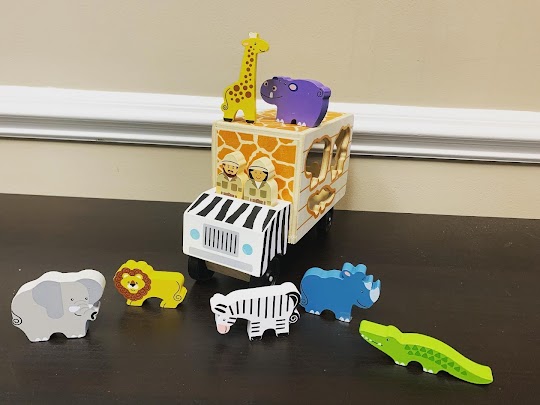Understanding Pediatric Speech Therapy for Communication Development
Communication is an essential part of a child’s development, allowing them to express their thoughts, needs, and feelings. For some children, speech and language delays can impact their ability to communicate effectively, which can affect their social interactions, academic performance, and emotional well-being. Pediatric speech therapy plays a critical role in helping children overcome these challenges and build the skills they need for effective communication. In this article, we’ll explore the importance of pediatric speech therapy, its benefits, and how it can support children in their communication development.
What is Pediatric Speech Therapy?
Pediatric speech therapy is a specialized form of therapy focused on helping children improve their speech and language skills. Speech-language pathologists (SLPs) work with children to address a variety of communication challenges, such as speech delays, articulation disorders, language processing issues, stuttering, and social communication difficulties. The goal of speech therapy is to help children develop the skills necessary for effective communication, whether it’s speaking, understanding language, or using non-verbal communication.
Speech therapy can be beneficial for children of all ages, from toddlers who are just beginning to form words to older children who may struggle with more complex language tasks. Therapy is tailored to the child’s unique needs, and the therapist uses a variety of techniques, activities, and tools to help the child progress in their communication abilities.
Common Reasons Children Might Need Speech Therapy
There are several reasons why a child might require speech therapy. Some of the most common reasons include:
- Speech delays: Some children develop speech at a slower pace than their peers, which may delay their ability to speak clearly or use a variety of words.
- Articulation disorders: Children may have difficulty pronouncing words correctly, leading to unclear or unintelligible speech.
- Language delays: Language delays can involve difficulty understanding spoken language, as well as challenges in using words and sentences appropriately.
- Stuttering: Some children may experience difficulty with the flow of their speech, leading to repetitions or disruptions in their speech patterns.
- Social communication difficulties: Children with conditions like autism spectrum disorder (ASD) may struggle with understanding social cues, turn-taking in conversation, and using language appropriately in social contexts.
- Feeding and swallowing difficulties: In some cases, speech therapy also addresses difficulties with feeding and swallowing, which can affect a child’s overall communication abilities.
How Speech Therapy Supports Communication Development
Pediatric speech therapy supports children in a variety of ways, helping them develop the foundational skills needed for effective communication. Below are some of the key areas that speech therapy targets:
1. Articulation and Pronunciation
Children who struggle with articulation disorders may have difficulty pronouncing certain sounds or words clearly. This can make it hard for others to understand them. Through speech therapy, children learn how to properly produce sounds and words through exercises that target mouth and tongue movements. Over time, they build the skills necessary to speak clearly and be understood by others.
2. Language Development
Language development encompasses both receptive language (understanding spoken or written language) and expressive language (using words, sentences, and gestures to communicate). For children with language delays, speech therapy helps them improve their vocabulary, sentence structure, and ability to follow instructions. Therapy also focuses on improving understanding of grammar, storytelling, and conversation skills.
3. Fluency and Stuttering
Stuttering is a common issue among children, characterized by disruptions in the normal flow of speech. Stuttering can manifest as repetitions of sounds, words, or phrases, or as prolonged pauses while speaking. Speech therapy focuses on techniques to help children control their speech patterns, improve fluency, and reduce anxiety associated with speaking. Therapists may use strategies like breathing exercises, slow speech techniques, and positive reinforcement to help children gain confidence in their ability to communicate.
4. Social Communication and Pragmatics
Social communication, or pragmatics, involves using language effectively in social situations. Children with social communication challenges, often seen in children with autism or other developmental disorders, may struggle with understanding body language, maintaining eye contact, or engaging in back-and-forth conversations. Speech therapists use role-playing, social stories, and other strategies to help children develop these essential social skills, enabling them to interact more effectively with peers and adults.
5. Non-Verbal Communication
Some children may rely on non-verbal forms of communication, such as gestures, sign language, or communication devices, especially if they have limited verbal abilities. Speech therapists work with children to support the development of these alternative forms of communication, ensuring they have the tools they need to express themselves clearly and effectively.
The Importance of Early Intervention
Early intervention is crucial for children with speech and language delays. The earlier a child receives speech therapy, the more likely they are to catch up to their peers and develop effective communication skills. Early intervention helps children build strong foundations for language development, which can have a lasting positive impact on their academic success, social interactions, and overall well-being.
Additionally, early intervention can prevent frustration and behavioral issues that often arise when children have difficulty expressing themselves. By addressing speech and language delays early on, speech therapists can help children develop the confidence and skills they need to succeed in all areas of life.
Speech Therapy at Talk About Therapy
At Talk About Therapy, we offer comprehensive pediatric speech therapy services for children of all ages. Our experienced speech-language pathologists work with children to assess their communication needs and create individualized therapy plans that target their specific challenges. Whether your child is struggling with speech delays, language issues, stuttering, or social communication difficulties, we provide a supportive and effective therapy approach.
Our speech therapy services include:
- Articulation therapy: Helping children pronounce words clearly and correctly
- Language therapy: Improving receptive and expressive language skills, including vocabulary development and sentence structure
- Fluency therapy: Addressing stuttering and helping children improve speech fluency
- Social communication skills: Teaching children how to interact appropriately in social situations
- Non-verbal communication: Supporting children who use gestures, sign language, or communication devices to express themselves
At Talk About Therapy, we take a holistic approach to speech therapy, addressing not only the child’s communication challenges but also their emotional and social needs. Our goal is to help children build the skills they need to communicate effectively and confidently, both at home and in social settings.
Conclusion: Empowering Children with Speech Therapy
Pediatric speech therapy plays a vital role in helping children overcome communication challenges. Whether addressing speech delays, articulation disorders, stuttering, or social communication difficulties, speech therapy helps children build the skills they need for effective and confident communication. Early intervention is key to ensuring that children reach their full potential and develop the communication skills necessary for success in life.
If you believe your child may benefit from pediatric speech therapy, contact Talk About Therapy today. Our team of experienced speech-language pathologists is here to support your child and help them achieve their communication goals.




